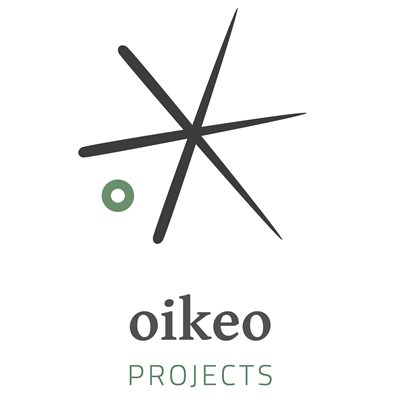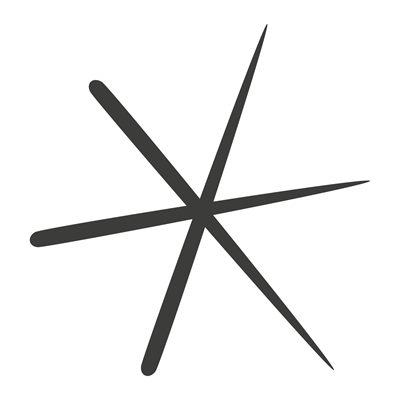

23.02.2013
In Khulna, der drittgrössten Stadt in Bangladesch, fühlen wir noch mehr vom Puls von Bangladesch. Während den Projektbesuchen lernen wir Menschen in grosser Armut kennen, die dennoch voller Hoffnung sind.
Immer wieder berührt uns die Schönheit, die hier in den kleinsten Dingen versteckt ist. Die Authentizität dieses Landes ist unglaublich. Während wir durch die Strassen gehen, erleben wir mehr davon: Jeder Moment hält ein Bild inne, das an Lebendigkeit und Farbigkeit fast nicht zu übertreffen ist. Rikschas, Babytaxis oder Busse, vollbeladen bis hin zum Trittbrett und dem Dach, fügen sich zu einem lärmigen, farbigen Strom zusammen, der immer in Bewegung scheint. Der Lärmpegel ist konstant hoch, wobei „Lärm“ hier eigentlich das falsche Wort ist: das Hupen der Busse, das Quietschen der Rikschas, die laut verhandelnden Männerstimmen in der melodiösen Sprache sowie das überall präsente Meckern von Ziegen ist ein einzigartiger Klangteppich, der sich über der ganzen Stadt ausbreitet, einzig unterbrochen vom regelmässig hörbaren Singsang der Muezzins von den zahlreichen Minaretten.
Und das Licht! Frühlingshaft schleicht es sich morgens mit langen Schatten durch die Strassen, am Mittag wird es von der staubigen Erde reflektiert und am Abend wird alles in wohlige, diffuse Wärme getaucht. Kalt wird es erst in der Nacht – angenehm zum Schlafen.
Hochglanz-Werbetafeln sucht man hier oft vergebens: in sorgfältiger Handarbeit werden die Werbungen für Mangosaft, Putzeimer oder Teebeutel auf die Wände gepinselt – jede Werbung ein Meisterwerk. Männer in traditionellen Dhotis (Beinkleidern) sitzen im Coiffeursalon mit den hölzernen, klobigen Stühlen, oder in der Metzgerei, wo am frischen Ziegenfleisch noch Bluttropfen hängen und die Ziegenköpfe sorgsam danebengestapelt sind. Gleich daneben gibt’s frischen Tee, mit Milch und viel Zucker köchelt er auf einem kleinen tönernen Ofen. Frauen, mal mehr oder weniger verschleiert, eilen durch die Strassen, ihre farbigen Kleider im Kontrast zum braungrauen Staub. „Bideshis“ (Fremde) werden neugierig beäugt und meist sind es die Kinder, welche das Eis brechen. Sobald eines mutig genug war und einen Schritt auf uns zugemacht hat mit einem „How are you?“, gibt es für die anderen Kinder kein Halten mehr. Dies erleben wir auch in den abgelegenen Dörfern, die wir mit CSS, einer Partnerorganisation von TearFund, besuchen.
Zwei Tage lang bekommen wir Einblick in die „Rural Health Centers“ (RHC), welche den meist armen Familien der Dörfer erschwingliche Gesundheitsversorgung bieten. Die Geschichten, die wir hier hören, gehen tief: Familien, die für eine Operation ihr Hab und Gut verkaufen mussten oder in den öffentlichen Krankenhäusern hilflos der Korruption ausgeliefert waren, sind heute dankbar für die kostenlosen Grunduntersuchungen und die günstige Krankenversichertenkarte in den RHCs. Das motivierte Personal beeindruckt uns sehr. Auf dem Weg kommen wir in Bagherat vorbei, wo wir die wunderschöne, rund 600 Jahre alte Shait Gumbad Moschee besichtigen. Der freundliche Imam führt uns herum und erlaubt sogar Joséphine, den Bereich ausserhalb des Frauenraums zu besuchen.
Im zweiten Projekt, welches wir ebenfalls während zwei Tagen näher kennenlernen, werden Frauen gezielt geschult, um für einen Mikrokredit optimal vorbereitet zu sein. Wir treffen wir zum Beispiel Rina, die nach der Schulung erfolgreich eine Hühnerzucht aufgebaut hat. Die stolzen, selbstbewussten Frauen gefallen uns.
Das Fotografieren und Filmen in den Projekten ist herausfordernd: obwohl neugierig, sind die Menschen oft etwas kamerascheu, insbesondere dann, wenn noch das ganze Dorf rundherum steht. Fotos zu machen, ohne jeweils eine grosse Menschenmasse im Hintergrund zu haben, braucht Geduld. Oft müssen wir auch einfach laut herauslachen über die Situation - und die ganze Masse lacht mit.
Nach unserem Aufenthalt in Khulna planen wir, via Barisal mit dem Boot nach Dhaka zu fahren. Leider macht uns die politische Situation einen Strich durch die Rechnung: nachdem während den letzten 3 Wochen anhaltende Demonstrationen stattgefunden haben, welche Gerechtigkeit für Kriegsverbrecher vom Bangladesch-Krieg fordern, hat sich nun die Lage zugespitzt. Im Zusammenhang mit den Demonstrationen wurde ein islamkritischer Blogger ermordet, was (unter anderem) den Unruhen eine religiöse Dimension verleiht. Lokale, gewaltsame Aufstände in einigen Städten waren die Folge davon. Wie sich die Situation entwickeln wird, ist momentan unklar. Wir werden daher auf direktem Weg nach Dhaka reisen, wo wir noch die letzten Tage verbringen, bis wir mit dem Zug nach Kalkutta, Indien, weiterfahren. Durch die grosse Fürsorge der Partnerorganisationen ist unsere Sicherheit gewährleistet.
Die besuchten Projekte werden von TearFund Schweiz unterstützt. Wer etwas spenden möchte, kann das hier tun.
In Khulna, the third largest city of Bangladesh, we feel the pulse of Bangladesh even more. During the project visits we get to know people in great poverty who are nevertheless full of hope.
Again and again we are moved by the beauty that is hidden here in the smallest things. The authenticity of this country is incredible. As we walk through the streets, we experience more of it: every moment presents a picture that is almost unbeatable in terms of liveliness and color. Rickshaws, baby taxis or buses, fully packed with not one seat left, are forming a noisy, colorful stream that always seems to be in motion. The noise level is consistently high, although "noise" is actually the wrong word here: the honking of the buses, the squeaking of the rickshaws, the loudly negotiating male voices in the melodious language as well as the ever-present bleating of goats is a unique soundscape that is laid over the city, only interrupted by the regularly audible chanting of the muezzins from the numerous minarets.
And the light! Spring-like in the morning it creeps through the streets with long shadows, at noon it is reflected by the dusty earth and in the evening everything is bathed in a warm, diffuse haze. It only gets cold at night - comfortable for sleeping.
You will often look in vain for glossy billboards here: the advertisements for mango juice, cleaning equipment or tea bags are carefully hand-painted on the walls - every advertisement is a masterpiece in itself. Men in traditional dhotis (trousers) sit in the hairdressing salon in wooden, chunky chairs, or in the butcher's shop, where drops of blood are still hanging on the fresh goat meat and the goat heads are carefully stacked next to it. There's fresh tea right next to it too, with milk and lots of sugar simmering on a small clay stove. Women, sometimes more or less veiled, hurry through the streets, their colored clothes in contrast to the brown-gray dust. “Bideshis” (strangers) are eyed curiously and it is usually the children who dare to break the ice. As soon as one was brave enough and took a step towards us with a “How are you?”, there is no stopping the other children. We also experience this in the remote villages that we visit with CSS, a partner organization of TearFund.
For two days we get an insight into the "Rural Health Centers" (RHC), which offer affordable health care to the mostly poor families in the villages. The stories we hear are deeply moving: families who had to sell their belongings for an operation or who were helplessly exposed to corruption in public hospitals are grateful today for the free basic examinations and the affordable health insurance card in the RHCs. We are very impressed by the motivated staff. On the way we pass Bagherat, where we visit the beautiful 600 year old Shait Gumbad Mosque. The friendly imam shows us around and even allows Joséphine to visit the area outside the women's room.
In the second project, which we also get to know better during two days, women are specifically trained to be optimally prepared for a microcredit. For example, we meet Rina, who successfully set up a chicken farm after completing the training. We like the proud, self-confident women.
Photographing and filming in the projects is challenging though: although curious, people are often a bit camera shy, especially when the whole village is still standing around. Taking photos without a large crowd in the background takes patience. Often we laugh out loud at the situation - and the whole crowd laughs too.
After our stay in Khulna, we plan to take a boat to Dhaka via Barisal. Unfortunately, the political situation is changing our plans: after the last 3 weeks of sustained demonstrations which demand justice for war criminals from the Bangladesh war, the situation has worsened consistently. A blogger critical of Islam was murdered in connection with the demonstrations, which (among other things) gives the riots a religious dimension. Local, violent uprisings in some cities were the result. How the situation will develop is currently unclear. We will therefore travel directly to Dhaka, where we will spend the last few days until we continue by train to Calcutta, India. Our security is guaranteed by the great care of the partner organizations.
The projects visited are supported by TearFund Switzerland.If you want to donate, you can do so here.
